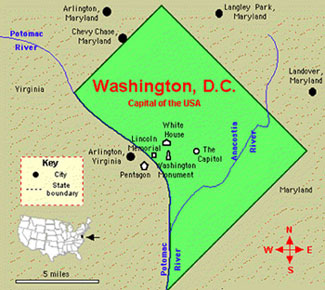
WASHINGTON, D.C. (FinalCall.com) – By the year 2020, if demographers predictions are correct, the nation’s capital will no longer be a “Chocolate City,” but more of a melting pot of cultures with no one group as the majority, according to U.S. Census Reports released last month.
D.C.’s Black population is declining, while the White and Asian population is increasing.
“The demographics shift means Washington likely will cease to be majority Black by 2020, said Robert E. Lang, director of the Metropolitan Institute at Virginia Tech.
He told The Washington Post, “It will wind up more like a Los Angeles or a New York, with no clear majority.”
Why are Blacks leaving in record numbers?
“We can’t afford to live here,” said long time resident Ronnie Mitchell. “Look at the housing costs, we have to leave. I love D.C. but it costs too much to live here. I can get more for my money in PG [Prince Georges] County.”
Experts agree that the lack of affordable housing and gentrification have contributed to the exodus.
“What you see are whites moving into the city because they are able to afford the pricey housing in all these areas that are gentrifying and becoming much more middle and upper-middle class,” said William H. Frey, a demographer at the Brookings Institution to Associate Press.
Not in my neighborhood
The change in population is right in line with D.C.’s new 20-year revitalization plans, which include decreasing the hundreds of licensed liquor, beer and wine establishments located throughout the city.
The Washington Afro American reported that many longtime residents believe the plan has been designed to accommodate the wave of Whites who have recently settled in the District from areas not plagued by an overabundance of liquor stores.
“That may be one view,” explained 8A Advisory Neighborhood Commissioner Anthony Muhammad, “As the city’s population changes, white people don’t want liquor stores on every corner as they are in the Black neighborhood. They vote and make political contributions to make sure they have the influence to get what they want.”
“Another view is the fact that the city doesn’t want to be held liable for the health consequences that come with alcohol consumption. The tobacco industry has been sued because of cigarettes. The alcohol industry can’t be far behind.”
He added, “The city has allowed establishments to prosper in the Black community that cause death and destruction. We have convenience stores that sell beer and wine in the middle of neighborhoods with schools. That’s not safe for our children.”
According to the Washington Afro American, in one subsection of the plan entitled, “Zoning Changes to Reduce Land Use Conflicts Zones” there will be a comprehensive rewriting of zoning regulations.
The amendment will “more effectively control the uses which are permitted as a matter-of-right in commercial zones; avoid the excessive concentration of particular uses with the potential for adverse effects such as convenience stores, fast food establishments, and licensed liquor establishments; and consider performance standards to reduce potential conflicts between incompatible uses.”
“In more affluent neighborhoods liquor stores are hidden, not allowed to run negative ads and not everywhere you look. The children and community are respected. But for years it seemed the government had so little respect for the majority of its residents, which were Black,” said Mr. Muhammad.
“Now that things are changing, finally the mindset of the government is changing along with it. We’ve protested for years to close liquors stores down and improve our community. This shows the power of people who vote, give money and use their influence to make their community what they want it to be.”
The Council adopted the recent 2006 revised comprehensive plan in December 2006 and has forwarded it to the National Capital Planning Commission and to the District Committee of the U.S. House of Representatives for their review. The revised plan becomes effective upon completion of federal review.












